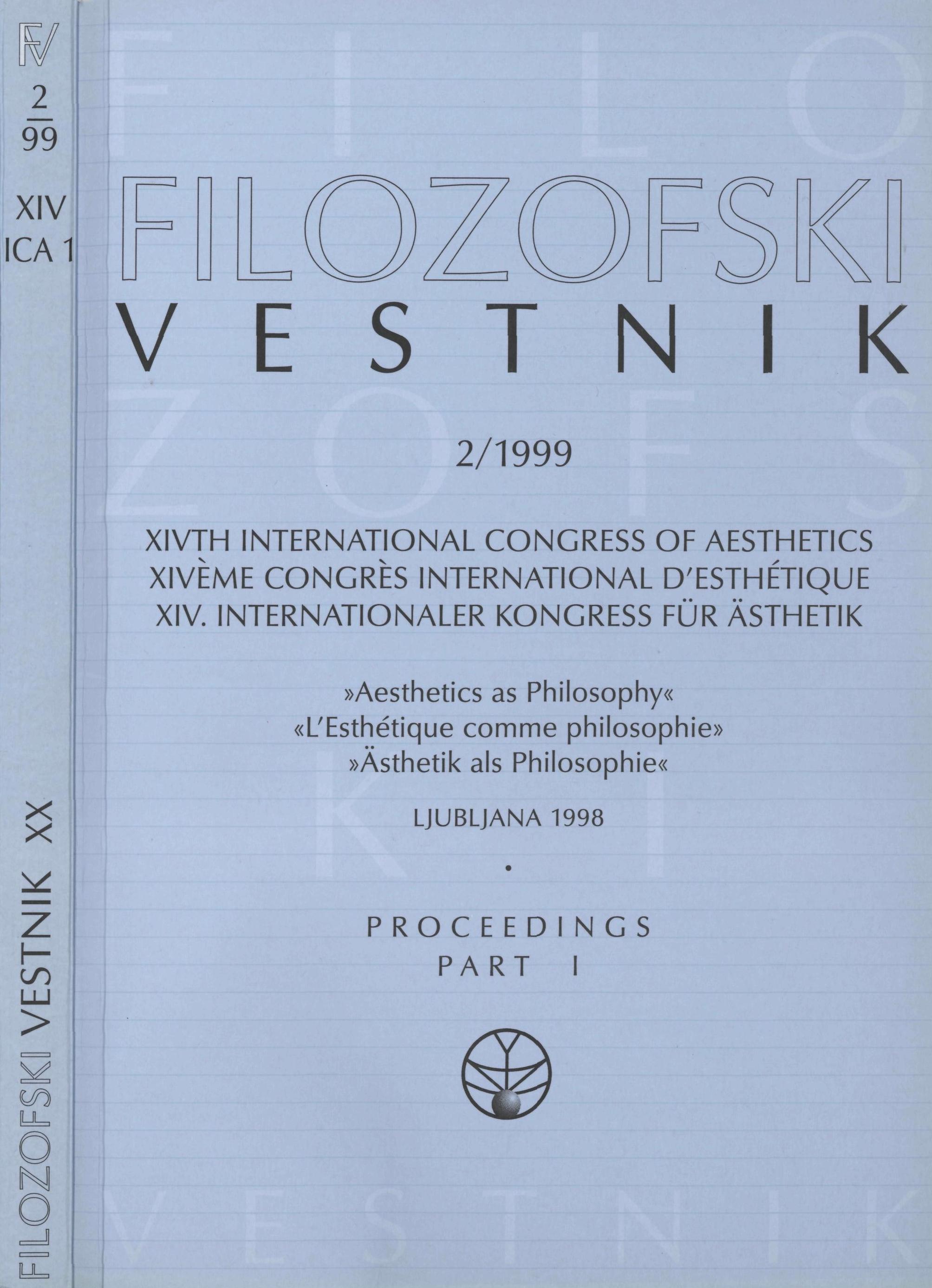Drifting into Dangerous Waters: The Separation of Aesthetic Experience from the Work o Art
Povzetek
The elevation of aesthetic experience in the Enlightenment, most extensively developed in Kant's analysis of disinterested contemplation, to compensate for the loss of putatively objective standards of beauty had several problematic implications. One was the privileging of the subject who had the experience over the object that stimulated it. Another was the potential extension of that experience to objects that were never intended to be works of art, not merely to ones given in nature, but also to political, social and cultural phenomena whose ethical or cognitive dimensions were concomitantly suppressed or marginalized. The aestheticization of the commonplace could thus countenance an inappropriate imperialism of the aesthetic sub-system of modernity over alternative sub-systems. Although the pragmatist aesthetics of John Dewey, recently revived in the work of Richard Shusterman, has acknowledged a need to revitalize the role of the art object, it may too quickly postulate a notion of aesthetic experience in which the equiprimordiality of subject and object is assumed. It is perhaps better to hold on to a tense constellation between art objects and the experience they generate in subjects in order to avoid a premature sublation of what remains still unreconciled in the larger culture.Prenosi
Podatki o prenosih še niso na voljo.
Prenosi
Objavljeno
2016-01-26
Kako citirati
Jay, M. (2016). Drifting into Dangerous Waters: The Separation of Aesthetic Experience from the Work o Art. Filozofski Vestnik, 20(2). Pridobljeno od https://ojs.zrc-sazu.si/filozofski-vestnik/article/view/4066
Številka
Rubrike
Articles
Licenca
Avtorji jamčijo, da je delo njihova avtorska stvaritev, da v njem niso kršene avtorske pravice tretjih oseb ali kake druge pravice. V primeru zahtevkov tretjih oseb se avtorji zavezujejo, da bodo varovali interese založnika ter da bodo povrnili morebitno škodo.
Podrobneje v rubriki: Prispevki





